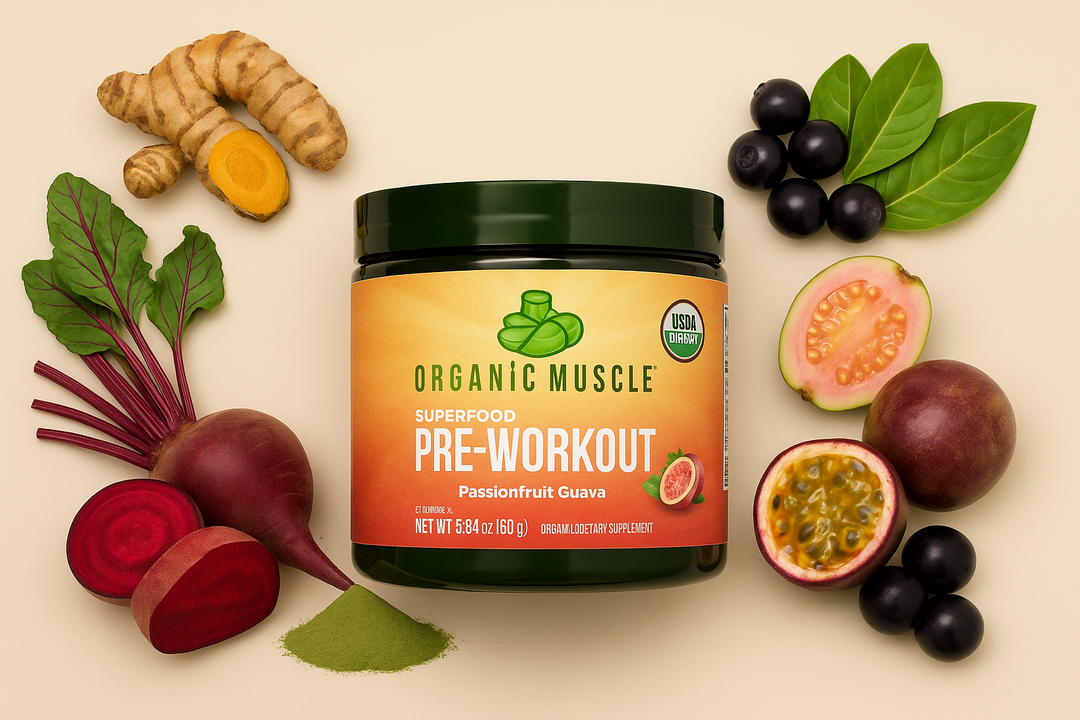Is Modern Society Making Us Sick? The Case for Natural Living
In the hustle and bustle of modern life, it's easy to lose sight of the natural rhythms that once guided our ancestors. The constant push for productivity, the relentless pace of urban living, and the pervasive presence of technology have created an environment that is often at odds with our innate human needs. But is modern society making us sick? Let's delve into the impact of contemporary societal norms on our mental and physical health and explore the compelling case for returning to natural, holistic living.
The Stress Epidemic
Modern life is synonymous with stress. From demanding work schedules to the pressures of social media, our lives are a constant juggle of responsibilities and expectations. Chronic stress has been linked to a myriad of health problems, including heart disease, diabetes, and mental health disorders like anxiety and depression.
- The American Psychological Association (APA) reports that chronic stress is a major health concern, contributing to physical and emotional ailments. According to the APA, stress levels in the U.S. have been rising, with significant implications for public health (American Psychological Association, 2020).
- A study published in the journal Lancet found that high levels of workplace stress are associated with a 50% increased risk of cardiovascular disease. This study highlights the profound impact that our fast-paced, high-pressure work environments can have on our physical health (Kivimäki et al., 2012).
The Digital Overload
Our reliance on technology has reached unprecedented levels. While digital devices offer convenience and connectivity, they also contribute to mental health issues such as anxiety, depression, and sleep disorders.
- Research from the National Institutes of Health (NIH) indicates that excessive screen time is linked to increased rates of depression and anxiety in both adults and children. The constant barrage of digital stimuli can overwhelm our brains, leading to mental fatigue and emotional distress (Twenge & Campbell, 2018).
- A study published in Sleep Medicine Reviews found that blue light exposure from screens can disrupt circadian rhythms, leading to poor sleep quality and associated health problems. Good sleep is essential for mental and physical health, and technology's interference with our natural sleep patterns is a significant concern (Chang et al., 2015).
The Nutrition Disconnect
The modern diet, rich in processed foods and low in nutritional value, stands in stark contrast to the wholesome, nutrient-dense foods our ancestors consumed. This shift has had devastating effects on our health.
- The World Health Organization (WHO) states that diets high in processed foods are linked to an increase in obesity, diabetes, and cardiovascular diseases. The prevalence of fast food and convenience meals has led to a global health crisis (World Health Organization, 2018).
- A study in the Journal of the American Medical Association (JAMA) found that ultra-processed foods contribute to higher rates of obesity and metabolic syndrome. These foods are often high in sugar, unhealthy fats, and additives, which can wreak havoc on our health (Hall et al., 2019).
The Case for Natural Living
Given the detrimental effects of modern societal norms, it's no wonder that many are advocating for a return to natural, holistic living. Embracing a lifestyle that prioritizes natural rhythms, whole foods, and a connection to nature can have profound benefits for both mental and physical health.
Embracing Nature:
- Spending time in nature has been shown to reduce stress, improve mood, and enhance overall well-being. The concept of "forest bathing," or spending time in wooded areas, has gained popularity for its mental health benefits (Li, 2010).
Eating Whole Foods:
- A diet rich in whole, organic foods provides essential nutrients that support overall health and prevent disease. Organic produce and grass-fed meats are free from harmful pesticides and antibiotics, offering cleaner, more nutritious options (Crinnion, 2010).
Prioritizing Mindfulness:
- Mindfulness practices, such as meditation and yoga, can reduce stress and promote mental clarity. These practices help us slow down and reconnect with our inner selves, fostering a sense of peace and balance (Goyal et al., 2014).
Digital Detox:
- Reducing screen time and engaging in tech-free activities can improve mental health and sleep quality. Simple changes, like setting boundaries for device usage and creating tech-free zones, can have a significant impact on our well-being (Roberts & David, 2020).
Conclusion
Modern society, with its relentless pace and digital overload, has undeniably taken a toll on our health. However, by returning to natural, holistic living, we can reclaim our well-being and thrive in harmony with our innate human needs. Embracing a lifestyle that prioritizes natural rhythms, whole foods, and a connection to nature is not just a trend—it's a profound shift towards a healthier, more balanced life.
Sources:
- American Psychological Association. (2020). Stress in America 2020: A National Mental Health Crisis. Retrieved from APA Website.
- Kivimäki, M., Nyberg, S. T., Batty, G. D., Fransson, E. I., Heikkilä, K., Alfredsson, L., ... & Theorell, T. (2012). Job strain as a risk factor for coronary heart disease: a collaborative meta-analysis of individual participant data. The Lancet, 380(9852), 1491-1497.
- Twenge, J. M., & Campbell, W. K. (2018). Associations between screen time and lower psychological well-being among children and adolescents: Evidence from a population-based study. Preventive Medicine Reports, 12, 271-283.
- Chang, A. M., Aeschbach, D., Duffy, J. F., & Czeisler, C. A. (2015). Evening use of light-emitting eReaders negatively affects sleep, circadian timing, and next-morning alertness. Proceedings of the National Academy of Sciences, 112(4), 1232-1237.
- World Health Organization. (2018). Healthy diet. Retrieved from WHO Website.
- Hall, K. D., Ayuketah, A., Brychta, R., Cai, H., Cassimatis, T., Chen, K. Y., ... & Zhou, M. (2019). Ultra-Processed Diets Cause Excess Calorie Intake and Weight Gain: An Inpatient Randomized Controlled Trial of Ad Libitum Food Intake. Cell Metabolism, 30(1), 67-77.
- Li, Q. (2010). Effect of forest bathing trips on human immune function. Environmental Health and Preventive Medicine, 15(1), 9-17.
- Crinnion, W. J. (2010). Organic foods contain higher levels of certain nutrients, lower levels of pesticides, and may provide health benefits for the consumer. Alternative Medicine Review, 15(1), 4-12.
- Goyal, M., Singh, S., Sibinga, E. M. S., Gould, N. F., Rowland-Seymour, A., Sharma, R., ... & Haythornthwaite, J. A. (2014). Meditation programs for psychological stress and well-being: a systematic review and meta-analysis. JAMA Internal Medicine, 174(3), 357-368.
- Roberts, J. A., & David, M. E. (2020). The Social Media Party: Fear of Missing Out (FoMO), Social Media Intensity, Connection, and Well-Being. International Journal of Human–Computer Interaction, 36(4), 386-392.












